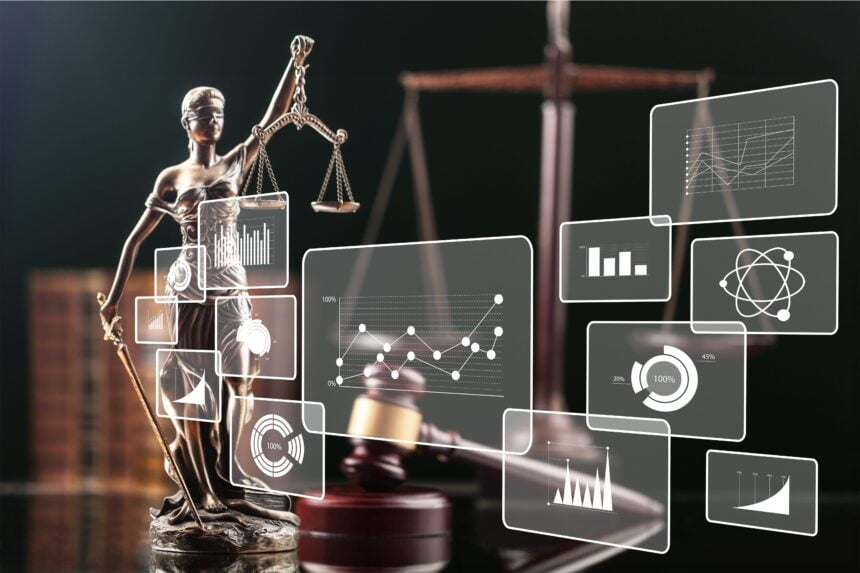We have previously written about the growing utilization of big data in the legal industry. Big data has unquestionably become more integral to many aspects of the legal profession, especially with researching laws and case precedents. However, there are other avenues for law firms to use big data to improve their business models. One benefit that is not regularly discussed Is the value of big data for conducting research on expert witnesses.
Law firms must expand their horizons with big data
Taylor and Francis Online recently published a study on the applicability of data science for the legal profession. They only showed the abstract in the linked page, but it is clear that their research shows big data has disrupted the legal profession in many ways.
The abstract references the most significant impact that big data has had on the field. A growing number of lawyers are using data analytics tools to find case precedents and relevant laws. This can be helpful in many legal cases, including civil litigation involving car accidents.
While the benefits of using data analytics to discover more nuanced approaches to legal arguments are evident, this technology can be at least as useful on a more localized level. Big data can be used to uncover evidence for a particular case.
This role is usually reserved for law-enforcement officials in criminal cases, although prosecutors and defense attorneys will need to conduct their own supplemental investigations as well. They can use big data to find important evidence that could change the tide of the case.
In civil litigation, data technology is even more important for legal professionals. They don’t have the cooperation of seasoned law enforcement professionals to handle the initial legwork of the investigation. They must conduct much more thorough investigations than prosecutors and criminal defense attorneys.
Big data could be important for finding material evidence that would be introduced at trial. However, there are other factors that need to be considered. One of the biggest challenges they face is finding suitable expert witnesses.
This is another avenue where big data could be a viable tool. Experienced legal professionals are finding new ways to use data analytics to find and vet expert witnesses. Here are some ways that data analytics could be essential for this process.
Data analytics tools can efficiently locate potential expert witnesses
The process for finding professionals in any capacity seems simple and straightforward in 2020. People should be able to just go to Google and conduct a quick search.
Unfortunately, this is not always feasible, especially for lawyers looking for expert witnesses. Expert witnesses often need much more specialized skillsets, which can make it more difficult to find the right candidate through Google. Some professionals have higher search engine rankings due to their search engine optimization strategies, rather than the quality of their services or area of specialization. For example, a psychiatrist that offers forensic consulting services might be the number one search result on Google. However, they might have only worked as a forensic expert on a couple of occasions.
Data analytics could help address this concern. Legal experts can use Hadoop and other data mining technology to evaluate databases of various experts and sort according to competency in various skill sets.
Data analytics can be crucial for conducting thorough background checks on expert witnesses
Lawyers can run into any number of surprises when they are putting an expert witness on the stand. Things might seem like they are going great, until cross examination. The opposing counsel might impeach the witness’s credibility by bringing up a lawsuit that was filed against them a few years earlier or another case where they rendered a terrible opinion.
This is where data analytics can be extremely helpful. Legal professionals can use data mining tools to research the witness’s background in greater detail. This will help them prepare for these types of questions or avoid using witnesses with too much baggage.
Lawyers should use big data to find and research expert witnesses
Big data is becoming more important than ever in the legal profession. The most successful lawyers will use data analytics for every aspect of their strategy, rather than relying solely on it for finding case law and precedent. They should use big data to find and vet their expert witnesses.

